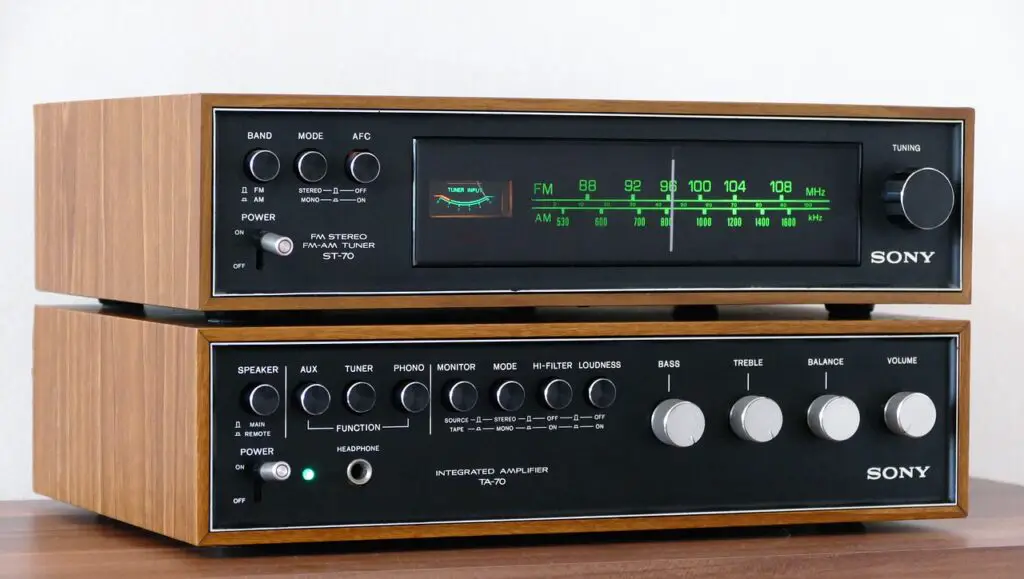Guitar amplifiers are an essential component of any electric guitar setup, as they help to amplify the sound of the guitar and shape its tone.
Selecting an ideal guitar amplifier is essential for achieving superior sound quality. Each amp has unique features and characteristics which can affect sound production.
Most amps provide various tone controls and effects, so you can customize it according to your preferences.
Many guitarists wonder whether guitar amps are universal or specific to certain guitar types. While certain factors can influence compatibility between a guitar and an amp, other elements also need to be considered.
While many guitar amps are compatible with various guitars, compatibility between an amp and a guitar isn’t guaranteed.
Factors such as pickups, cables, and wattage affect compatibility between guitars and amps. When selecting a guitar amp, it’s essential to consider your instrument type, the music genre you play, and your taste.
For instance, if your guitar features humbucker pickups, opt for a tube amp that can handle higher gain levels while producing warm and rich tones.
Similarly, a lower wattage amp may suffice if you play in a small venue; however, larger venues and performances require higher wattages.
Selecting appropriate cables and connectors ensures your guitar sounds its best through your amp.
Which Type Of Power Cable Is Typically Used For Guitar Amps?
Guitar amps typically use a standard AC power cable with a three-pronged plug.
This plug is compatible with most household outlets, making it convenient to power up your amp.
However, some guitar amps may require special cables or adapters to function properly – thus why consulting the owner’s manual before purchasing any power cable is always recommended.
In addition to the power cable, the connection between your guitar and amp is essential for producing excellent sound quality.
A standard method is using TS cables, which offer a balanced connection. TS cables are less expensive than TRS ones and can be used for various purposes.
When connecting your guitar to an amp, using high-quality TS cable helps reduce noise and interference while providing more precise and dynamic audio.
Can Any Guitar Be Connected To An Amplifier?
Acoustic guitars require a different amp than electric guitars due to their distinct tone characteristics.
Acoustic guitars generate sound by vibrating their body, which is captured by a microphone or pickup and produces a more complex and nuanced sound than electric guitars.
Standard guitar amps may not be sufficient to amplify acoustic guitars adequately.
Plugging an acoustic into a standard amp may produce subpar results, as it wasn’t specifically designed to handle its subtleties.
Acoustic guitars are unique instruments, producing sound through the resonance of their body and strings.
However, these sounds may sound tinny, harsh, or unpleasant when amplified.
To combat this issue, some companies have developed dedicated acoustic guitar amplifiers designed specifically for these instruments that capture and boost natural tones.
These amps include components like preamps, EQs, and combined effects to produce a full-bodied tone from your guitar.
Can An Improved Amplifier Enhance The Sound Quality Of My Guitar?
A quality amp is essential when creating an electric guitar sound.
All components work together to produce this unique tone, so investing in a top-rated amp usually yields better results and helps you achieve your desired tone.
Guitarists must take into account their guitars when creating the ideal sound.
Experiment with different models until you find one that appeals to your musician instinct and lets inspiration flow freely.
Different guitars have distinct tonal characteristics, which may either enhance or detract from desired results.
A guitar with humbucker pickups produces a different tone than one equipped with single-coil pickups.
Do All Guitar Amplifiers Have The Same Features?
Guitar amplifiers vary in shape, size, and color from one another; each amp has unique attributes that can affect how sound is produced.
Every amp also has distinct character traits that set it apart. When selecting an amplifier, size, and portability are critical considerations.
Some are small and lightweight to make them transportable; others may be large and bulky, making them difficult to move around.
Some amplifiers come with just one speaker, while others boast multiple speakers. Amplifiers with multiple speakers create a richer, more complex soundscape; however, those with only one speaker may provide more focused and direct audio output.
It is worth noting that different amplifiers are ideal for different genres of music. Some are tailored specifically for heavy metal or rock music, while others excel in jazz or blues genres.
Thus, selecting an appropriate amplifier based on your type of music is important.
Do All Guitar Amplifier Power Cords Have The Same Specifications?
Guitar amplifier power cords come in various types and configurations. The most widely used power cords are the standard two-pronged, three-pronged, and grounded varieties. Two-pronged power cords are usually used for lower-wattage amps, while three-pronged cords are used with higher-wattage amps.
Grounded power cords feature an extra prong that protects against electrical shocks. When purchasing a guitar cable, it’s essential to understand how it is connected.
Mono cables typically feature one pair of wires running down the center, while stereo cables feature two wires running down the middle.
Mono connectors can be sufficient when connecting your guitar to an amplifier. However, stereo or TRS plugs are required if you wish to attach your guitar to another device, such as a DJ mixer.
If you’re unsure which connector to use, check the back of your amplifier or guitar manual. Be familiar with the differences between these cable types before making a purchase.
What Is An Essential Factor In Achieving A Flawless Guitar Tone?
When selecting an amplifier, its power rating and speaker size should be considered.
A power rating indicates how much electrical energy can be produced by the amp to drive a speaker.
As a general guideline, select an amplifier with a continuous power rating 1.5 to 2 times higher than your speaker’s rating.
This ensures the amplifier can drive the speaker adequately and provides at least 3dB of headroom for comfortable listening at any volume setting.
Headroom is essential for producing clear and crisp audio quality.
Headroom refers to the difference between an amplifier’s maximum power output and what is necessary to drive a speaker properly.
Headroom of 3dB indicates the amplifier can deliver twice the energy necessary to drive a speaker, safeguarding it from overwork or damage.





